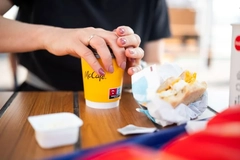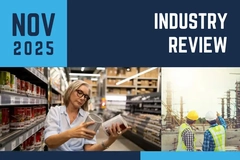
- Industry news
Industry news
- Category news
- Reports
- Key trends
- Multimedia
Multimedia
- Journal
- Events
- Suppliers
Suppliers
- Home
- Industry news
Industry news
- Category news
- Reports
- Key trends
- Multimedia
Multimedia
- Events
- Suppliers
Suppliers
Aimplas reports uptick in revenue as R&D tech services reach across Europe

10 May 2024 --- Spanish research center Aimplas has reported €21.3 million (US$22.9 million) in revenue for 2023 — an 11% increase over the previous year, by managing 280 R&D projects, providing more than 7,500 technological services and organizing over 200 training actions and conferences.
These activities increased the center’s impact on its 3,339 client companies and more than 840 member companies it had listed by the end of the year.
The source of 70% of Aimplas’ income in 2023 was the activity carried out for the R&D projects that it developed with 532 companies, 75% of which were SMEs, while about 30% of the projects were international. As a whole, these projects generated a direct economic return of €73.6 million (US$79.3 million) for participating companies.
In addition, 23% of Aimplas’ income in 2023 corresponded to activities related to over 7,500 technological services provided to more than 1,000 companies.
Turnover for the center’s services increased by 26% to almost €5 million (US$5.4 million) compared to the prior year.
Aimplas’ training and conference activity also increased by 26% and represented 5% of the center’s income. A total of 200 training actions and 23 conferences were held, where 3,578 professionals from more than 1000 companies took part. Participants gave these activities an average score of 8.7 out of 10, according to Aimplas.
Aimplas’ projects
Recently, Aimplas announced it would be participating in an EU-funded project to promote a European circular economy for the bio-based industrial ecosystem using AI-powered solutions.
The SYMBA project titled “Securing Local Supply Chains via the Development of New Methods to Assess the Circularity and Symbiosis of the Bio-based Industrial Ecosystem” aims to “revolutionize” industrial practices by promoting cooperation within bio-based ecosystems.
The technology center also began spearheading a project in the EU to produce cost-efficient polyhydroxyalkanoates (PHAs) for agricultural and personal care packaging applications.
The company will do this by coprocessing organic wastes such as sludge from the dairy industry and glycerol from the biodiesel industry, as well as recovering nutrients to produce bio-based fertilizers.
Edited by Louis Gore-Langton











